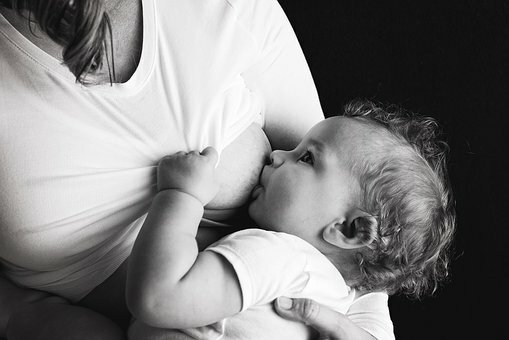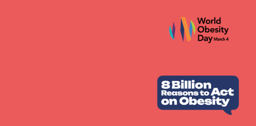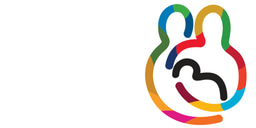Breastfeeding and prescription medicines: the importance of translating research evidence into clinical practice
Published in Pharmacy & Pharmacology, Public Health, and Paediatrics, Reproductive Medicine & Geriatrics

 Professor Sue Jordan, MB.BCh, PhD, PGCE, FHEA, works as a teacher and researcher in medicines management, medicines monitoring, pharmaco-epidemiology and patient safety. Her multidisciplinary group is contributing to medicines monitoring by developing and testing personalised adverse drug reaction profile checklists to identify, communicate and minimize any adverse effects of prescription medicines, including breastfed infants. European collaborations are exploring the impact of prescribing in pregnancy and breastfeeding.
Professor Sue Jordan, MB.BCh, PhD, PGCE, FHEA, works as a teacher and researcher in medicines management, medicines monitoring, pharmaco-epidemiology and patient safety. Her multidisciplinary group is contributing to medicines monitoring by developing and testing personalised adverse drug reaction profile checklists to identify, communicate and minimize any adverse effects of prescription medicines, including breastfed infants. European collaborations are exploring the impact of prescribing in pregnancy and breastfeeding.
Sue is a community councillor for Gwaun Cae Gurwen, and a deacon of Capel Annibynnol, Cwmllynfell.
What is the focus of your research and how does it relate to SDG3 (Sustainable Development Goal 3- good health) and SDG5 (gender equality)? (UN 2023)
Medical science unapplied
The failure to translate knowledge and research evidence into clinical practice harms patients and their chances of ‘good health’ (SDG3). Information on the safety of medicines during pregnancy and breastfeeding is not always available (Byrne et al 2019, Lopez-Leon et al 2024). Medication-related harm accounts for ~50% of preventable harm during healthcare delivery, and costs ~$42 billion p.a. (WHO 2022). For decades, 5-8% of unplanned UK hospital admissions are due to largely avoidable adverse drug reactions (Jordan et al 2021), and unnecessary prescribing of dependency-inducing medicines costs the NHS £500,000 each year (Davies et al 2022), despite known risks to women, including increased prevalence of congenital anomalies, and infant formula feeding (Jordan et al 2016, 2019).
Our research indicates that the more medicines administered in labour, the lower the chances of breastfeeding (Jordan et al 2005, 2009), and there is a similar dose-response relationship between antidepressants and breastfeeding (Jordan et al 2019). However, evidence has failed to persuade professional leaders that monitoring patients for potential adverse effects of medicines should be an essential part of routine care – primum non nocere (Jordan et al 2021). Targeted breastfeeding support should follow medicines exposure.
What are some of the social and cultural challenges surrounding breastfeeding, particularly the UK?
Breastfeeding rates and prescription of antidepressants are both closely associated with socio-economic status, and poverty (Jordan et al 2005, 2015). Breastfeeding rates in Wales are lower than across most of the UK*, and globally (Cheung 2018), whilst antidepressant use during pregnancy is higher (Charlton et al 2014). Child poverty rates in Wales, at 27-36%, (JRF 2003) and educational attainment (Ingram et al 2023) are some of the worst in the OECD, and poverty is the most powerful predictor of educational attainment (Rawlings et al 2022). Breastfeeding improves children’s health and abilities (Kramer et al 2008), but since the end of the pandemic, breastfeeding rates have been falling, despite re-instatement of routine care (exclusive breastfeeding rates at 6 months were lower in 2021 than 2018 [aOR 0.91, 86-96], table 2) (Jones et al 2023). It may be time to apply pharmacology to practice.
What progress has been made over recent years, if any?
None, breastfeeding rates are falling (Jones et al 2023), and antidepressant prescriptions are rising (Robiyanto et al 2023).
Researching the impact of medicines on breastfeeding rates and the impact of medicines prescribed during pregnancy is difficult because databanks housing routine electronic healthcare records rarely hold data on in-hospital prescribing (Lopez-Leon et al 2024), very few electronic healthcare databanks collect data on breastfeeding (Jordan et al 2022, 2023), and some withhold data on miscarriage, thereby generating gender inequality in patient safety (SDG5).
You've worked as an Associate Editor for International Breastfeeding Journal for several years now. What issues does the journal aim to address and how can people benefit from the research published?
The journal unites the myriad disciplines involved in breastfeeding research and encompasses clinical, biological, psychological, and sociological aspects of breastfeeding. This holistic approach transcends professional boundaries, and builds an inter-disciplinary community of academics from across the world. It also offers a platform for breastfeeding research, as a discipline in its own right, that might otherwise be orphaned, lost between obstetrics, midwifery, health visiting, paediatrics, and public health. However, there is a long journey between published research and clinical practice, particularly when implementing research would require change in routine practice.
Finally, what does International Women's Day mean to you and what message would you like to share?
Can International Women's Day be a vehicle for change?
Medical science should not remain unapplied: many women take medicines during pregnancy and breastfeeding, and they need targeted support to overcome the physiological barriers to breastfeeding induced by prescription medicines. The power of the patriarchy, and established practice, should not continue to dominate research to the extent that it determines what data are available for research (SDG5] (Jordan et al 2023). Maternal and child health are inseparable and multi-faceted: SDG3 cannot be achieved without closer monitoring and more support for women prescribed medicines. Will declining breastfeeding rates, declining school performance, increasing prescription rates and increasing child poverty provoke change?
*2023 1st quarter any breastfeeding at 6-8 weeks: Wales 39.8%, England 48.8% (Stats Wales 2023, NHS England 2023).
References
Byrne JJ, Spong CY. "Is It safe?" - The many unanswered questions about medications and breast-feeding. New England Journal of Medicine. 2019;380(14):1296-7.
Charlton RA, Jordan S, Pierini A, Garne E, Neville AJ, Hansen AV, Gini R, Thayer D, Tingay K, Puccini A, Bos HJ, Nybo Andersen AM, Sinclair M, Dolk H, de Jong-van den Berg LTW (2015) SSRI use before, during and after pregnancy: a population-based study in 6 European regions BJOG: An International Journal of Obstetrics and Gynecology. 122(7):1010-20. doi: 10.1111/1471-0528.13143
Cheung R 2018 International comparisons of health and wellbeing in early childhood. Nuffield Trust, London https://www.nuffieldtrust.org.uk/sites/default/files/2018-03/1521031084_child-health-international-comparisons-report-web.pdf
Davies, J., Cooper, R. E., Moncrieff, J., Montagu, L., Rae, T., & Parhi, M. (2022). The costs incurred by the NHS in England due to the unnecessary prescribing of dependency-forming medications. Addictive Behaviors, 125, 107143–107143. https://doi.org/10.1016/j.addbeh.2021.107143
Ingram J et al 2023 PISA 2022: National Report for Wales. Welsh government, Cardiff https://www.gov.wales/sites/default/files/statistics-and-research/2023-12/pisa-2022-national-report-wales-059.pdf
Jones HE, Seaborne MJ, Mhereeg MR, James M, Kennedy NL, Bandyopadhyay A, Brophy S. Breastfeeding initiation and duration through the COVID-19 pandemic, a linked population-level routine data study: the Born in Wales Cohort 2018-2021. BMJ Paediatr Open. 2023 Jul;7(1):e001907. doi: 10.1136/bmjpo-2023-001907. PMID: 37433713; PMCID: PMC10347487.
Jordan S, Bromley R, Damase-Michel C, Given J, Komninou S, Loane M, Marfell N, Dolk H. Breastfeeding, pregnancy, medicines, neurodevelopment, and population databases: the information desert. Int Breastfeed J. 2022;17:55. doi: 10.1186/s13006-022-00494-5. PMID: 35915474. https://internationalbreastfeedingjournal.biomedcentral.com/articles/10.1186/s13006-022-00494-5
Jordan S, Charlton RA, Tingay K, Thayer DS, Davies GI, Morgan M, Tucker D, Watkins A, Gini R, Pierini A, Hansen A, Garne E, Nybo Andersen A, Puccini A, Neville AJ, Bos HJ, de Jong-van den Berg LTW, de Vries CS, Dolk H. SSRI use in pregnancy: a study in 6 European databases. The International Marcé Society For Perinatal Mental Health Biennial Scientific Conference, Swansea University, Swansea, Wales, UK. Abstracts from The Marce Society Conference. Arch Womens Ment Health (2015) 18:269–408 P.368 Doi 10.1007/S00737-014-0488-6
Jordan S, Davies GI, Thayer DS., Tucker D., Humphreys I. 2019 Antidepressant prescriptions, discontinuation, depression and perinatal outcomes, including breastfeeding: a population cohort analysis. PLOS ONE 14(11): e0225133. https://doi.org/10.1371/journal.pone.0225133
Jordan S, Emery S, Watkins A, Evans JD, Storey M, Morgan G. Associations of drugs routinely given in labour with breastfeeding at 48 hours: analysis of the Cardiff Births Survey. BJOG. 2009 Nov;116(12):1622-9;
Jordan S, Komninou S, Lopez Leon S (2023) Where are the data linking infant outcomes, breastfeeding and medicine exposure? A systematic scoping review. PLOS ONE 18(4): e0284128. https://doi.org/10.1371/journal.pone.0284128
Jordan,S., Logan,V., Turner,A., & Hughes,D.Using nurse-led patient monitoring to avoid medicines-related harm.Nursing Standard, doi:10.7748/ns.2021.e11770. 28.6.21
Jordan S , Morris JK , Davies GI, Tucker D, Thayer DS, Luteijn JM, Morgan M, Garne E, Hansen AV, Klungsøyr K, Engeland A, Boyle B, Dolk H (2016) Selective Serotonin Reuptake Inhibitor (SSRI) antidepressants in Pregnancy and Congenital Anomalies: analysis of linked databases in Wales, Norway and Funen, Denmark. Plos One 11(12): e0165122. doi: 10.1371/journal.pone.0165122
Kramer MS, Aboud F, Mironova E, Vanilovich I, Platt RW, Matush L, Igumnov S, Fombonne E, Bogdanovich N, Ducruet T, Collet JP, Chalmers B, Hodnett E, Davidovsky S, Skugarevsky O, Trofimovich O, Kozlova L, Shapiro S; Promotion of Breastfeeding Intervention Trial (PROBIT) Study Group. Breastfeeding and child cognitive development: new evidence from a large randomized trial. Arch Gen Psychiatry. 2008 May;65(5):578-84. doi: 10.1001/archpsyc.65.5.578. PMID: 18458209.
Lopez-Leon S, Geldhof A, Scotto J, Wurst K, Sabidó M, Mo J, Molgaard-Nielsen D, Bergman JEH, Phi XA, Jordan S. Drug Utilization Studies in Pregnant Women for Newly Licensed Medicinal Products: A Contribution from IMI ConcePTION. J Pregnancy. 2024 Jan 11;2024:8862801. doi: 10.1155/2024/8862801. PMID: 38250012; PMCID: PMC10796183. https://www.hindawi.com/journals/jp/2024/8862801/
NHS England 2023 https://www.gov.uk/government/statistics/breastfeeding-at-6-to-8-weeks-after-birth-quarterly-data-for-2022-to-2023 (accessed 6.3.24)
OECD (2023), Poverty rate (indicator). doi: 10.1787/0fe1315d-en (Accessed on 10 October 2023)
Rawlings, A., Scanlon, I., Glinianaia, S., Rankin, J., Loane, M., Morris, J., Thayer, D., Tucker, D. and Jordan, S. (2022) “A national data linkage study to determine the association of congenital anomalies with standardised education outcomes”., International Journal of Population Data Science, 7(3). doi: 10.23889/ijpds.v7i3.1845. 7-9th September 2022 International Population Data Linkage Conference, Edinburgh A national data linkage study to determine the association of congenital anomalies with standardised education outcomes.
Robiyanto R, Schuiling-Veninga CCM, Bos JHJ, Hak E, van Puijenbroek EP. Exposure to psychotropic drugs before and during pregnancy: what has changed over the last two decades? Arch Womens Ment Health. 2023 Feb;26(1):39-48. doi: 10.1007/s00737-023-01290-8. Epub 2023 Jan 14. PMID: 36640183; PMCID: PMC9908723.ales
Stats Wales 2023, 1st quarter 2023 https://statswales.gov.wales/Catalogue/Health-and-Social-Care/NHS-Primary-and-Community-Activity/Breastfeeding/breastfeedingquarterlyrates-by-age-lhb (accessed 6.3.24)
United Nations 2023 Times of Crisis, Times of Change.Global Sustainable Development Report 2023. https://sdgs.un.org/sites/default/files/2023-09/FINAL%20GSDR%202023-Digital%20-110923_1.pdf (accessed 7.3.24)
WHO (World Health Organisation). (2022). The Third Global Patient Safety Challenge. Retrieved September 20, 2023, from https://www.pslhub.org/learn/organisations-linked-to-patient-safety-uk-and-beyond/international-patient-safety/who/the-third-who-global-patient-safety-challenge-medication-without-harm-r7406/ (accessed 7.3.24)
Follow the Topic
-
International Breastfeeding Journal

This journal encompasses articles about breastfeeding, focusing on nursing, midwifery, paediatric, obstetric, family medicine, public health, immunology, physiology, sociology and many other topics.
Related Collections
With Collections, you can get published faster and increase your visibility.
Donor Human Milk in the 21st Century: Policy, Practice, Innovation, Equity, and Impact
Breastfeeding is crucial for both the baby and the mother. It has nutritional, developmental, economic, and environmental impacts on the family, health system, and the planet. Donor human milk is a critical resource for infants whose mothers’ own milk is not available due to various reasons. As the importance of donor human milk continues to grow globally, there is a need for comprehensive research and discussion on best practices, clinical and public health impacts, ethical considerations, and innovative approaches in this field.
This special collection aims to bring together cutting-edge research, reviews, opinions, and case studies to advance our understanding and support the development of donor human milk initiatives worldwide.
This Collection supports and amplifies research related to SDG 1, No Poverty, SDG 2, Zero Hunger, SDG 3, Good Health and Well-Being, SDG 5, Gender Equality, SDG 13, Climate Action and SDG 17, Partnership for the Goals .
We recognize that many key stakeholders may not have access to such resources and are committed to supporting participation in this issue wherever resources are a barrier. For more information about what support may be available, please visit OA funding and support, or email OAfundingpolicy@springernature.com or contact the Editor-in-Chief.
Publishing Model: Open Access
Deadline: May 19, 2026
Becoming Baby-friendly: What works?
International Breastfeeding Journal is calling for submissions to our Collection on ‘Becoming Baby-friendly: What works?’. This Special Collection aims to understand the altruism, strategies and processes that underpin a country or organisation’s decision to implement and successfully gain ‘Baby-friendly’ accreditation.
The collection welcomes a diverse range of contributions, including primary research articles, systematic reviews, policy papers, case studies and commentaries. Authors are encouraged to present novel insights, empirical findings, and practical recommendations that can inform policy decision-making and program development, using a strengths-based approach.
The Collection invites contributions that explore a wide range of research areas, including but not limited to:
1. Baby-friendly Hospital Initiative
2. Neo – BFHI
3. Baby-friendly communities
4. Baby-friendly primary care practices
5. Baby-friendly pharmacies
6. Baby-friendly universities
This Collection supports and amplifies research related to SDG 3, Good Health and Well-Being.
We are committed to supporting participation in this issue wherever resources are a barrier. For more information about what support may be available, please visit OA funding and support, or email OAfundingpolicy@springernature.com or contact the Editor-in-Chief.
Publishing Model: Open Access
Deadline: May 01, 2026





Please sign in or register for FREE
If you are a registered user on Research Communities by Springer Nature, please sign in